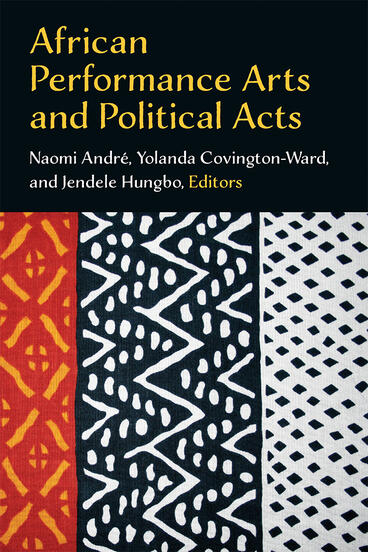African Performance Arts and Political Acts
Explores how performance arts, whether staged or in daily life, regularly interface with political action across the African continent
Description
African Performance Arts and Political Actspresents innovative formulations for how African performance and the arts shape the narratives of cultural history and politics. This collection, edited by Naomi André, Yolanda Covington-Ward, and Jendele Hungbo, engages with a breadth of African countries and art forms, bringing together speech, hip hop, religious healing and gesture, theater and social justice, opera, radio announcements, protest songs, and migrant workers’ dances. The spaces include village communities, city landscapes, prisons, urban hostels, Township theaters, opera houses, and broadcasts through the airwaves on television and radio as well as in cyberspace. Essays focus on case studies from Cameroon, the Democratic Republic of the Congo, Nigeria, Senegal, South Africa, and Tanzania.
Naomi André is Professor in the Department of Afroamerican and African Studies, Women’s and Gender Studies, and the Residential College at the University of Michigan.
Yolanda Covington-Ward is Associate Professor and Department Chair in the Department of Africana Studies at the University of Pittsburgh.
Jendele Hungbo is Associate Professor and Head of the Department of Mass Communication at Bowen University, Iwo, Nigeria.
Reviews
“These investigations crucially speak to each other and are enhanced by four thematic subtopics that help to structure the work. The collection thus presents a strong case for new directions in performance and politics on the continent and is highly recommended for scholars in humanities and social science fields.”
- Tydskrif Vir Letterkunde
—Tydskrif Vir Letterkunde
“More than holding a microphone and repeating a party line, the political power of performance is found in minute, everyday interactions. African Performance Arts and Political Acts provides a methodological template for recognizing and investigating this fact.”
- African Studies Quarterly
—African Studies Quarterly

